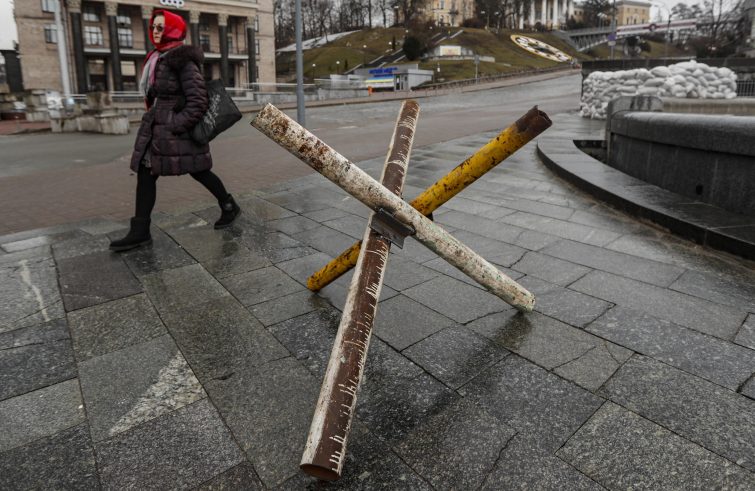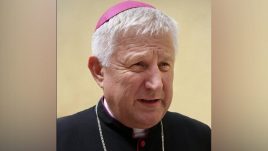
The city of Kherson is now under Russian occupation. Russian troops have seized the city in the southern part of the country. A small parish church near Kherson was bombed and destroyed in the attacks. Fortunately, there were no casualties. An attack from the sea is now fearfully expected in Odessa. Msgr. Stanislav Szyrokoradiuk, bishop of the Catholic diocese of Odessa-Simferopol, contacted by phone during the morning, reports on the situation to SIR. The bishop describes the efforts put in place by the Church of Odessa to assist the few people left in the city, especially the elderly living alone.
 Your Excellency, please tell us about the situation in Kherson. What is the news from there?
Your Excellency, please tell us about the situation in Kherson. What is the news from there?
Kherson is occupied by the Russians.
Have there been heavy attacks?
Some towns near Kherson suffered heavy attacks. Kherson was not under defence, which is why the Russians were able to enter. The situation is calm now. But one parish church has been completely destroyed by bombing – a small church near Kherson. Thankfully there were no casualties and everyone is alive. There is a parish and a priest in Kherson who are now carrying on as normal.
What’s the situation in Odessa?
Alarms are sounding, especially at night. We have been spending the night in shelters to stay safe. We know that there are attacks around Odessa, but for now and thanks be to God, the situation in the city is calm. We expect them to attack us from the sea. It’s extremely dangerous.
Are people afraid?
It’s normal to be afraid.
And you, how are you coping with this situation?
We are busy arranging assistance for the local population. Businesses, especially grocery shops, are closed and therefore many people have nothing to eat or drink. We prepare 70 to 90 meals a day. Caritas Odessa runs its own activities but these days, every parish in Odessa, including the cathedral, is open to offer food and relief for the people. The Church continues to carry out its services. Holy Mass is celebrated four times a day. Not many people attend, since we are afraid of these repeated alarms.
Have you been receiving many requests for help?
Quite a lot. Many children and younger families have fled. Odessa is a densely populated city with busy streets. But right now it’s empty. The elderly in particular have stayed behind. They are alone and need help, especially with food. Our diocese has child care facilities, but through Caritas Kiev and Caritas Odessa, we have been evacuating children to safer places, to eastern Ukraine and to Poland.
What would happen if Odessa fell into Russian hands?
We believe it will not happen, the city will defend itself.
Would you like to send out an appeal?
The whole of Europe must understand what is happening here. We are facing an aggressor who is committing acts of terrorism. Countless houses, buildings, civic centres have been destroyed. Many people have been killed. This is terror. Last night’s attack on the nuclear power plant was a horrific and dangerous action. Europe must understand that this war poses a threat not only to Ukraine but to the whole of Europe. However, I also want to say thank you! I want to thank all those who have been sending aid, solidarity, and prayers for us. This is very important. For this we want to say thank you! May everything possible be done for the sake of peace.









